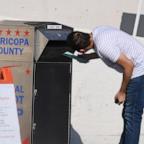'Greenwashing' Draws Customers With Questionable Claims, but Practice Not Illegal
Some products are misleadingly labeled as eco-friendly.
Nov. 5, 2009— -- In the past five years, there's been an explosion of products marketed as "green" and good for the environment.
And last year, Americans spent a great deal of money on them. But now, the government has cracked down on some companies, saying their green claims aren't accurate.
Critics call the marketing practice "greenwashing" -- a way to attract customers by labeling products as eco-friendly when they may not be. The problem is that there is no legal definition of what "green" is, so companies can make all sorts of claims without providing proof.
"Environmentally- friendly," "green" and "natural" are all labels with no legal meaning.
"It infuriates me," said Leigh Stringer, an environmental architect, a mother and author of "The Green Workplace."
Stringer tries to live green, especially because she has a 3-year-old daughter, she said. Greenwashed products make her angry.
"When I find that they haven't done the work -- they just slapped a green label on something -- and haven't really shown me that they've done the due diligence. ... I find it very frustrating," she said.
The Federal Trade Commission recently filed complaints about four textiles marketed as natural bamboo, which they're not.
"In fact, the fiber that's used in each of these is rayon," Jim Kohm of the FTC told "Good Morning America."
The FTC also recently brought cases against three products labeled biodegradable, when in reality they're unlikely to break down. Five of the seven companies involved in these cases have agreed to stop making the claims in question, without admitting fault.
"The reason the FTC is on the beat is we want to make sure consumers get what they're paying for," Kohm said.




